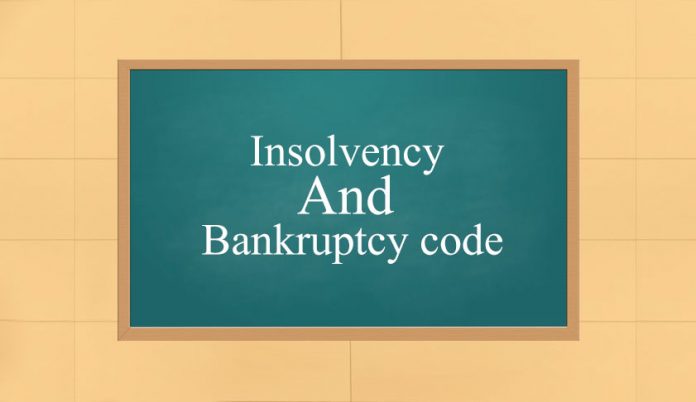This article is written by Chandana, from The Tamil Nadu Dr Ambedkar Law University (SOEL). This is an article which deals with all you need to know about the Insolvency and Bankruptcy Code (Amendment) Bill, 2020.
Table of Contents
Introduction
The Insolvency and Bankruptcy Code (Amendment) Bill, 2020 was passed by the Parliament and received assent from the President on March 13, 2020 and it came into force on December 28, 2020. The Finance Minister Nirmala Sitharaman said as of January 2020, out of forty-three cases which have been disposed of by National Company Law Tribunal (NCLT), nearly fifteen thousand cases were disposed under the Insolvency and Bankruptcy Code. She also said this action will help in protecting the rights of every Homebuyer and Micro, Small and Medium Enterprises.
Insolvency and Bankruptcy Code (Amendment) Act, 2020
Below are the amendments brought forward to Insolvency and Bankruptcy Code, 2016
by the Insolvency and Bankruptcy Code (Amendment) Act, 2020
Amendment of Section 5(12) of Insolvency and Bankruptcy Code, 2016
According to Section 5(12) of Insolvency and Bankruptcy Code, 2016 “Insolvency Commencement Date” means the date on which an applicant files an application for corporate insolvency resolution process by the adjudicating authority under the Section 7, 9 and 10. This clause (12) of Section 5 of Insolvency and Bankruptcy Code, 2016 shall be omitted by the Insolvency and Bankruptcy Code (Amendment) Act, 2020.
Amendment of Section 5(15) of Insolvency and Bankruptcy Code, 2016
According to Section 5(15) of Insolvency and Bankruptcy Code, 2016 “ Interim finance” mean as any financial debt which is raised by the resolution professional during the resolution period and (such other debt as may be notified) the words which are inserted inside the bracket shall be added to the Section 5(15) of the Insolvency and Bankruptcy Code, 2020.
Amendment to Section 7 of Insolvency and Bankruptcy Code, 2016
According to Section 7 of Insolvency and Bankruptcy Code, 2016, a corporate insolvency application may be filed against the corporate debtor when a default has occurred. An application may be filed before the adjudicating authority by the financial creditor either himself or jointly.
The following proviso is inserted to Section 7 of Insolvency and Bankruptcy Code (Amendment) Act, 2020.
Provided, that the corporate Insolvency application shall be filed jointly by the financial creditors against the corporate debtors and such creditors shall not be less than one hundred who belong to the same class or who are holding not less than 10% of a total number of creditors who belong to the same class, whichever is less.
Provided, that if the financial creditors are allottees under the real estate project, a Corporate Insolvency application shall be filed jointly by the financial creditors against the corporate debtor and such allottees shall not be less than one hundred who belong to the same real estate project or who are holding not less than 10% of a total number of allottees who belong to the same class, whichever is less.
Amendment to Section 11 of Insolvency and Bankruptcy Code, 2016
According to Section 11 of Insolvency and Bankruptcy Code, 2016, the following person as mentioned below shall not be allowed to file an application for corporate insolvency application
- A corporate debtor who is undergoing the corporate insolvency process;
- A corporate debtor who has completed the corporate insolvency process before the twelve months of filing an application.
- Either the corporate debtor or financial creditor has violated the terms of the resolution plan which was approved before the twelve months of filing an application.
- Liquidation order made to the corporate debtor.
The explanation 1 : A corporate debtor includes a corporate applicant in respect of such corporate debtors.
Explanation 2 has been inserted to Section 11 of Insolvency and Bankruptcy Code (Amendment) Act, 2020 which goes like this: Nothing in this Section shall prevent a corporate debtor which is referred to in clause (a) to (d) from filing an application of corporate insolvency process against another corporate debtor.
Amendment to Section 14 of Insolvency and Bankruptcy Code, 2016
According to Section 14 of Insolvency and Bankruptcy Code, 2016, the following explanation has been inserted to Section 14 of Insolvency and Bankruptcy Code (Amendment) Act, 2020:
- In Sub-Section (1) it states that notwithstanding anything contained in any other law for time being in force the corporate debtor’s licence, permit, registration, quota, concession, clearance or similar rights or grants which is given to the corporate debtor either by the Central Government or the State Government, local authority, sectoral regulatory or any other authority for time being in force and all the things which are mentioned above shall not be suspended or terminated on the grounds of insolvency subject to the condition that is no default in payment of current dues arising for the use or continuation of a licence, permit, registration, quota, concession, clearance or a similar right or grant during the moratorium period.
- Sub-Section (2) inserted by the Insolvency and Bankruptcy Code (Amendment) Act, 2020 states if the resolution profession feels that supply of goods or services is needed to protect and preserve the corporate debtor and to manage the operations as a going concern, then the supply of such goods or services shall not be terminated or suspended during the moratorium period except they may get suspended if the corporate debtor has not paid dues which are arising from such supply during the moratorium period.
- The following clause shall be substituted by the Insolvency and Bankruptcy Code (Amendment) Act, 2020 for clause (a) in sub-section (3) such transactions, agreements or arrangements be notified by the central government after obtaining the consultation from the financial sector, regulator or any other authority.
Amendment of Section 16 of Insolvency and Bankruptcy Code, 2016
According to Section 16 of the Insolvency and Bankruptcy Code, 2016 the words “on the insolvency commencement” have been added to Section 16 of the Insolvency and Bankruptcy Code (Amendment) Act, 2020 and the words “within fourteen days from the insolvency commencement date” have been deleted.
Amendment to Section 21(2) second provison of Insolvency and Bankruptcy Code, 2016
According to Section 21(2) second proviso of the Insolvency and Bankruptcy Code, 2016 the words “or completion of such transaction as may be prescribed” have been added to Section 21(2) of the Insolvency and Bankruptcy Code (Amendment) Act, 2020 and the words “convertible into equity shares” have been deleted.
Amendment to Section 23(2) of the Insolvency and Bankruptcy Code, 2016
According to Section 23(2) of the Insolvency and Bankruptcy Code, 2016 the following paragraph “the resolution professional even after the expiry of resolution plan shall continue to the manage the affairs of the corporate debtor until an order requiring approval of resolution plan under Section 31 or appointment of a liquidator under Section 34 is passed by the adjudicating officer” has been inserted to Section 23(2) of Insolvency and Bankruptcy Code (Amendment) Act, 2020.
Insertion of new Section 32A under the Insolvency and Bankruptcy Code (Amendment) Act, 2020.
According to Section 32A under the Insolvency and Bankruptcy Code (Amendment) Act, 2020:
- A corporate debtor shall not be liable for an offence committed prior to initiation of corporate insolvency resolution process and he shall not be liable for prosecution for such an offence from the date of resolution plan been approved by the adjudicating officer and if the resolution plan results in a change of management or control is given to a person who was not a:
- The promoter, or who is not in management or control of the corporate debtor or he should not be a related party to the corporate debtor.
- If there is a reason to believe that the investigating authority has been conspired or abetted for the commission of an offence and has either submitted or filed a report or complaint to the relevant statutory authority or court.
- Provided if a prosecution has been instituted during the resolution process it shall stand discharged from the date of the resolution plan.
- Provided the person who is mentioned as a designated partner under Section 2(j) of LLP Act, 2008 or all the officers of default as mentioned under Section 2(60) of the Companies Act, 2013 and if they are found to be involved in the commission of an offence with the corporate debtor they shall be liable for the prosecution and be punished for such an offence which is have been committed by corporate debtor notwithstanding the liability of corporate debtor has been ceased.
- It shall also be noted that no action shall be taken against the properties of a corporate debtor in relation to an offence committed prior to the commencement of insolvency resolution process and where such property is covered under the resolution plan approved by adjudicating authority and which results either in the change in the control of the corporate debtor or sale of liquidation of assets.
Amendment to Section 227 of the Insolvency and Bankruptcy Code, 2016.
According to Section 227 of the Insolvency and Bankruptcy Code, 2016 the words “contained in this code” have been inserted by the Insolvency and Bankruptcy Code (Amendment) Act, 2020 instead of the words “examined in this code”.
The following explanation to Section 277 has been added by the Insolvency and Bankruptcy Code (Amendment) Act, 2020: For any removal of doubts it is clarified that for insolvency and liquidation proceedings for financial service providers or categories of financial service providers the insolvency proceedings shall be conducted in the manner prescribed.
Amendment to Section 239 of the Insolvency and Bankruptcy Code, 2016
According to Section 239 of the Insolvency and Bankruptcy Code, 2016 the following clauses shall be added to Section 239 of the Insolvency and Bankruptcy Code (Amendment) Act, 2020:
(a) the transaction under the second proviso of Section 21(2).
(b) the transaction under Explanation 1 of Section 29A(c).
(c) the transaction under the second proviso of Section 29A(j).
Amendment of Section 240 of the Insolvency and Bankruptcy Code, 2016
According to Section 240(2) of the Insolvency and Bankruptcy Code, 2016 the following clause after clause (i) shall be added to Section 240(2) of Insolvency and Bankruptcy Code (Amendment) Act, 2020
(a) if the circumstances arise the supply of critical goods or services may be terminated, suspended, and can also be interpreted during the period of the moratorium as provided under Section 14(2A) of the Insolvency and Bankruptcy Code (Amendment) Act, 2020.
Important features of Insolvency and Bankruptcy Code (Amendment) Act, 2020
- The threshold of the creditors.
- The continuous supply of critical goods.
- There is no termination of the licence and other grants.
Conclusion
The Insolvency and Bankruptcy Code (Amendment) Act, 2020 is a comprehensive legislation as it covers individuals, companies, LLP and Partnership firms. By the introduction of the Insolvency and Bankruptcy Code (Amendment) Act, 2020 it has brought a way forward in addressing the issues and problems of business and which are economic in nature. The act mainly seeks to remove the bottlenecks and streamline the corporate insolvency resolution process. Insolvency and Bankruptcy Code which helped in changing the credit behaviour of borrowers.
References
LawSikho has created a telegram group for exchanging legal knowledge, referrals and various opportunities. You can click on this link and join:
 Serato DJ Crack 2025Serato DJ PRO Crack
Serato DJ Crack 2025Serato DJ PRO Crack











 Allow notifications
Allow notifications


